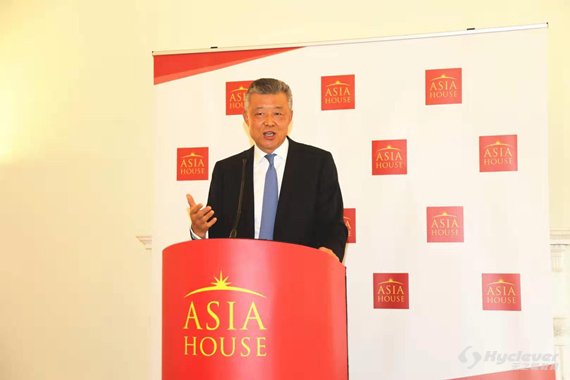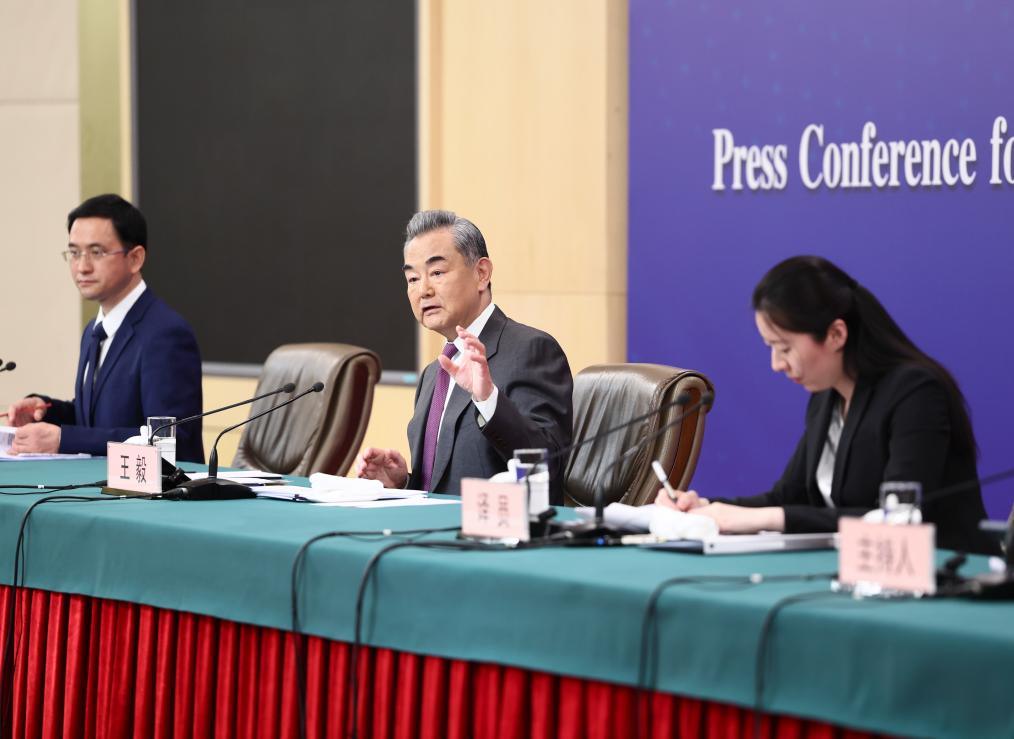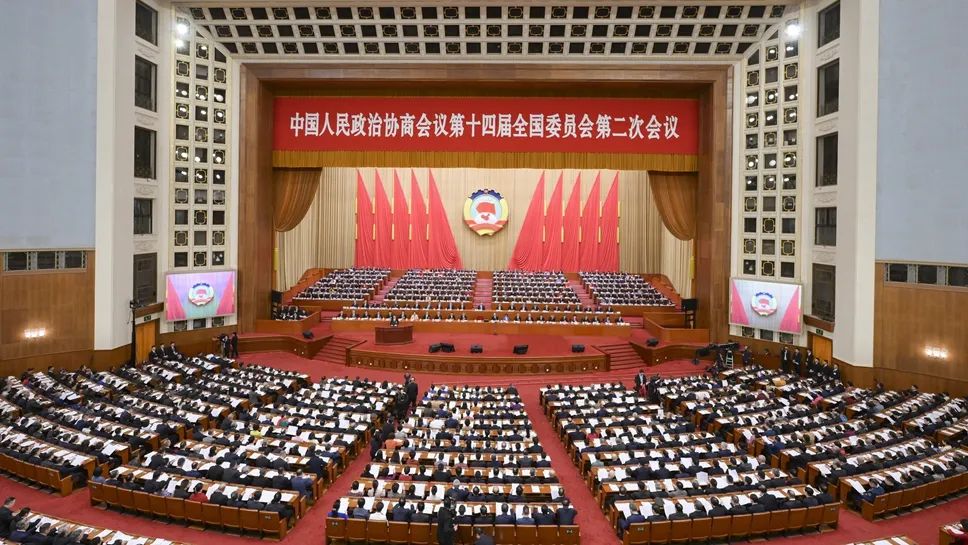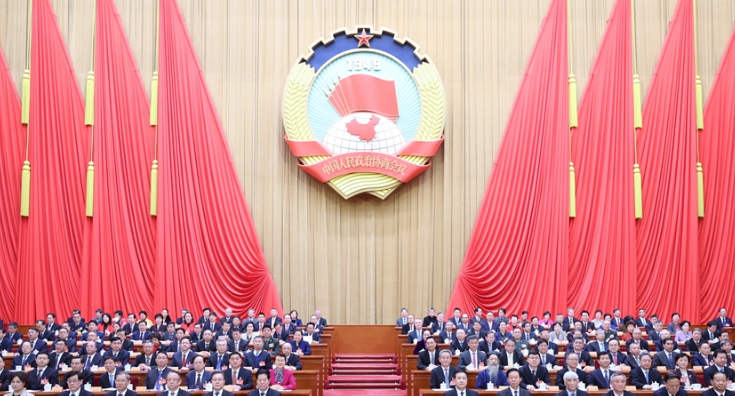CATTI-题库-真题-模拟-课程-直播
 中国驻英国大使馆
中国驻英国大使馆
 2019-09-29
2019-09-29
 中国驻英国大使馆
中国驻英国大使馆
 570次
570次

(图片来源:中国驻英国大使馆)
刘晓明大使在英国“亚洲之家”发表主旨演讲:《共答“时代之问”,同创美好未来》
Keynote Speech by H.E. Ambassador Liu Xiaoming: The Questions of Our Times Call for a Joint Response
(2019年9月26日,亚洲之家)
Asia House, 26 September 2019
尊敬的“亚洲之家”主席格林勋爵,
尊敬的各位使节,
各位“亚洲之家”会员,
各位来宾,
女士们,先生们,
大家上午好!
Lord Green,
Your Excellencies,
Members of Asia House,
Distinguished Guests,
Ladies and Gentlemen:
Good morning!
感谢格林勋爵的热情介绍。我曾多次做客“亚洲之家”,与大家探讨共同关心的重大问题,每次都有新启发、新收获。
Thank you, Lord Green, for your kind introduction.
I am not a stranger here at Asia House. It has always been a pleasure to come here to share my views on major issues of common interest. And every visit to Asia House gives me new inspirations and new thoughts.
当今世界正处于百年未有之大变局,变局与乱局相互交织,全球化与反全球化相互激荡,单边主义与多边主义相互碰撞,民粹主义与民族主义相互渗透,世界何去何从令人深思。2017年,习近平主席在联合国日内瓦总部提出“世界怎么了?我们怎么办?”的时代之问。作为驻英大使,我还经常思考,在当前形势下,中英两国如何开展合作,应对全球挑战?今天我愿围绕上述三个问题,与大家分享几点看法。
The world is undergoing profound changes unseen in a century. Changes are punctuated by chaos. Boundaries between populism and nationalism are blurred. Amid surging anti-globalisation and rising unilateralism, globalisation and multilateralism suffer backlashes. These developments are raising questions about where the world is going.
Just as President Xi Jinping asked in his speech at the UN Office in Geneva in 2017, "What has happened to the world? How should we respond?"
For me, as Chinese Ambassador to the UK, I have another important question before me, that is, how to enhance China-UK cooperation in responding to global challenges?
Today I would like to share with you my views on these three questions.
关于第一个问题“世界怎么了”,我认为,世界正面临三大挑战:
The first question: What has happened to the world?
In my view, the world is facing three main challenges.
一是发展挑战。当前,世界经济下行压力加大,不确定不稳定因素增加。个别国家挑起和升级贸易摩擦,严重损害世界经济。国际货币基金组织将今年世界经济增长预期降至3.2%,为2008年全球金融危机以来的最低水平。世界贸易组织预计今年国际贸易仅增长2.6%,远低于世界经济增长预期。新一轮科技革命加快推进,在提高经济效率的同时也拉大了资本、科技和劳动力报酬的差距,扩大了“数字化鸿沟”。对很多家庭而言,拥有温暖住房、充足食物、稳定工作仍是一种奢望。解决全球发展赤字问题依然任重道远。
The first challenge is the development deficit.
The world economy is under mounting downward pressure and showing further uncertainties and instabilities. On top of that, the escalating trade friction triggered by a certain country is dealing a severe blow.
IMF has downgraded the outlook for world economic growth to 3.2%, the lowest since the outbreak of the financial crisis in 2008. WTO prediction for this year's trade growth is only 2.6%, even lower than the outlook for world economic growth.
It is true that the new round of scientific and technological revolution have resulted in higher economic efficiency. But it has also widened the gap between returns on capital, technology and labour, and it has exacerbated the "digital divide". For many families, the basic necessities of life, such as food, shelter and jobs, are still out of reach.
Cutting the global development deficit remains a daunting task.
二是治理挑战。过去一个世纪,我们历经两次世界大战的伤痛和冷战的阴云,才换来二战后相对稳定的国际体系。和平来之不易,秩序值得珍惜。但环顾当今世界,稳定和确定性成为“稀缺产品”。保护主义、霸凌行径不断抬头,严重冲击国际规则和多边机制,侵蚀国际社会信任与合作。现行国际秩序和治理体系不尽完美,新兴市场国家和发展中国家代表权和发言权不足,代表性和包容性不够,亟需改革完善,但怎么改、改成什么样需要各国商量着办。解决全球治理赤字依然步履维艰。
The second challenge is the global governance deficit.
In the past century, mankind suffered the scourges of two world wars and endured the dark clouds of the Cold War before establishing a relatively stable international system. Peace has not come easy. It is all the more important that the current international order be cherished.
However, stability and certainty have become "scare commodities" today. Surging protectionism and bullying behaviour are dealing a heavy blow on international rules and multilateral mechanisms, and undermining the trust and cooperation between countries of the world.
The current international order and governance system are not perfect. They need to be more representative and inclusive in order to give more representation and greater voices to emerging economies and developing countries. This is a serious global governance deficit. Reform and improvement are badly needed to bring down this deficit. Every country must be involved in the decision-making process of such reform, including how it should be carried out and what will be the goals.
Cutting the global governance deficit remains a thorny issue.
三是安全挑战。当今世界并不太平。地区冲突和局部战争持续不断,恐怖主义、极端主义依然猖獗,热点问题此起彼伏。根据斯德哥尔摩国际和平研究所数据,2018年世界军费支出总额增至18220亿美元,同比增加2.6%,达到冷战后最高水平。同时,各种非传统安全威胁接踵而至,气候变化、网络安全、难移民危机等不仅与我们的日常生活息息相关,也影响全球和地区局势稳定,更关乎人类的命运和未来。解决世界和平赤字依然是人类共同面临的难题。
The third challenge is peace deficit.
With incessant regional conflicts and wars, rampant terrorism and extremism, and surging hot-spot issues, the world is far from a peaceful and tranquil place.
According to the Stockholm International Peace Research Institute, the overall global military expenditure was $1822 billion in 2018, which was an increase of 2.6% over the previous year and the highest since the end of the Cold War.
Moreover, non-traditional threats to security are mounting. Climate change, cyber security and the refugee crisis not only have an impact on our daily life and on regional and global stability. They also have a bearing on the destiny and future of all mankind.
So, cutting the peace deficit also remains a challenging work for all.
关于第二个问题“我们怎么办”,中国给出的答案非常明确,那就是中国始终做全球发展的贡献者、国际秩序的维护者和世界和平的建设者。
Now let me turn to the second question: How should we respond to these challenges?
Here is China's clear-cut answer: China will always be a contributor to global development, an upholder of international order and a defender of world peace.
首先,中国为全球经济提供信心和动力。再过几天,就是新中国成立70周年。70年来,中国从“一穷二白”跃升为世界第二大经济体。自2006年以来,中国对世界经济增长的贡献率保持在30%左右,成为世界经济增长第一引擎。今年上半年,中国经济同比增长6.3%,处于合理区间,同世界主要经济体相比增速居领先地位。中国对外贸易和吸引外资继续保持增长,1-8月中国进出口总额约2.95万亿美元,同比增长3.6%;中国新设立外商投资企业27704家,实际使用外资约892.6亿美元,同比增长6.9%。
中国深化改革、扩大开放的决心和信心更加坚定。中国坚定推进共建“一带一路”,已同166个国家和国际组织签署了共建“一带一路”合作协议,“一带一路”已成为全球最受欢迎的公共产品和规模最大的合作平台。从深化增值税改革、个税改革等减税降费政策,到不断加大知识产权保护力度、加快制定《外商投资法》实施细则,中国正持续改善和优化营商环境。从出台新版外商投资准入负面清单、到深圳建设中国特色社会主义先行示范区、上海启动自贸区临港新片区建设,再到山东、江苏、广西、河北、云南、黑龙江6省区的6个新设自由贸易试验区正式揭牌,中国对外开放的大门越来越大。中国有近14亿人口、9亿劳动力、4亿多中等收入人群、1亿多户市场主体、1.7亿受过高等教育和拥有技能的人才资源。无论外部风云如何变幻,我们坚信,中国经济发展韧性十足、潜力巨大,长期向好。中国将保持定力办好自己的事,继续将自身发展融入世界,并以自身发展促进世界发展,更好造福各国人民。
First, China provides confidence and impetus for world economy.
In a few days, China will celebrate the 70th anniversary of the founding of the People's Republic. In the past 70 years, China has grown from an impoverished country to the second largest economy in the world.
Since 2006, China has contributed around 30% of growth globally. It is now the world's most important economic powerhouse.
China remains one of the fastest-growing major economies in the world. In the first half of this year, China's economy grew by 6.3% year-on-year, which is well within the anticipated range.
Foreign trade and foreign investment in China have kept increasing. From January to August, import and export reached $2.95 trillion, increasing by 3.6% year-on-year. There were 27,704 newly-set-up foreign businesses, and the actual paid-in foreign investment totaled about $89.26 billion, up by 6.9% year-on-year.
China remains determined and confident in deepening reform and opening its market wider to the world.
China has promoted the building of the Belt and Road Initiative (BRI). It has signed agreements on BRI cooperation with 166 countries and international organisations. BRI is now the most popular public goods and largest cooperation platform in the world.
China is improving its business environment by
deepening reforms on individual income tax and VAT,
cutting tax and lower fees,
stepping up IPR protection,
and formulating the supporting regulations of the Foreign Investment Law.
China is also taking new measures to open wider to the world, including:
adopting a new negative list for foreign investment,
establishing the Shenzhen pilot demonstration area of socialism with Chinese characteristics.
building the new Lingang area of the Shanghai free trade zone.
and setting up six free trade pilot zones in Shandong, Jiangsu, Guangxi, Hebei, Yunnan and Heilongjiang.
China has
a population of close to 1.4 billion,
labour forces of 900 million,
middle-income earners of more than 400 million,
market entities of more than 100 million,
and a well-educated and skilled talent pool of 170 million people.
No matter how things may change in the world, China has confidence in the resilience, the potential and the prospects of its economy. China will focus firmly on managing its own affairs well. At the same time, China will continue to integrate with the world, promote world development through its own development, and deliver more benefits to the people of all countries.
二是中国为国际秩序提供稳定和正义。中国是联合国的创始成员国,是战后国际秩序的开创者、受益者和捍卫者。我们坚定维护以联合国为核心的国际体系、以国际法为基础的国际秩序,维护以世界贸易组织为核心的多边贸易体制。中国积极参与全球治理体系改革和建设,加入了世界几乎所有重要政府间国际组织,签署了300多项国际公约。中国曾被挡在联合国大门之外长达22年,但我们从未动摇对多边主义的信念;中国“复关”和“入世”谈判历时15年,尽管付出了代价,但我们全面履行入世承诺,矢志不渝地融入国际秩序和多边机制。中国已成为联合国常规预算第二大出资国,贡献份额达12%。作为最大发展中国家,中国在国际上始终主持公道、捍卫公平正义,维护发展中国家共同利益,支持发展中国家扩大国际话语权和影响力。
Second, China contributes to the stability and justice of the international order.
China is one of the founding members of the United Nations. It is a creator, beneficiary and defender of the international order established after the Second World War. China remains firm in upholding the international system with the UN as its core, the international order based on international law, and the multilateral trade system with the WTO as its core.
China has taken an active part in the reform and development of the global governance system. It has joined almost all the major inter-governmental international organisations and signed more than 300 international conventions.
China had been shut out of the UN for 22 years but never wavered in its belief in multilateralism. China had spent 15 years in negotiations to resume its contracting party status to the General Agreement on Tariffs and Trade and to join the WTO. Despite all the difficulties and prices, China has lived up to its WTO commitments fully, and integrated steadfastly with the international order and multilateral mechanisms. China is now the second largest contributor to the UN regular budget, accounting for 12% of the total amount.
As the largest developing country, China upholds justice and fairness in the world, safeguards the common interests of all developing countries, and supports the efforts of other developing countries to raise their voices and increase their influence in the world.
近年来,中国日益走近世界舞台的中央,国际社会对中国关注度呈指数型上升。有人认为中国会推翻现有国际秩序“另起炉灶”,甚至还祭出“新冷战”、“修昔底德陷阱”,这完全是“莫须有”的误解和担忧。中国坚持共商共建共享的全球治理观,反对赢者通吃、国强必霸的旧逻辑。中国不寻求挑战或取代谁,而是走对话而不对抗、结伴而不结盟的国与国交往新路。近两年,中美关系遇到不少困难,责任不在中方。我们始终认为,今天的中美关系完全不同于冷战时期的美苏关系。所谓“中美脱钩论”,不符合时代潮流,也不符合两国利益交融的现实。中方无意与美方冲突对抗,将推进以协调、合作、稳定为基调的中美关系。
In recent years, as China approaches centre stage in world affairs, the interest in China from the rest of the world has increased exponentially. There are worries that China will challenge the current world order and "reinvent the wheel". There are also talks about a "new Cold War" between China and the US, and predictions that China will fall into the "Thucydides Trap". But these are all needless worries due to misunderstandings.
In our view, global governance should follow the principle of extensive consultation, joint contribution and shared benefits. China opposes the outdated logic that "winner takes all" or "strength leads to hegemony". China is not aimed at challenging or replacing any country. It is committed to a new path of state-to-state relations that values dialogue above confrontation, partnership above alliance.
China should not be blamed for the difficulties in China-US relations in the past two years. We believe that China-US relationship is completely different from the US-Soviet Union relationship during the Cold War. The so-called "decoupling" is not in line with the trend of the times. Nor does it tally with the fact that the interests of the two countries are deeply intertwined. China does not want conflicts or confrontations with the US. China will continue to pursue a China-US relationship that is based on coordination, cooperation and stability.
三是中国为世界和平提供担当和智慧。中国坚定不移走和平发展道路,以自身发展促进世界和平,同时倡导世界各国共同走和平发展道路。70年来,中国没有主动挑起过任何一场战争和冲突。中国实行防御性国防政策,是核大国中唯一承诺不首先使用核武器的国家。在联合国安理会五常中,中国国防费占国内生产总值比重、人均国防费均为最低,人均国防费仅为美国的1/18、英国的1/9。中国是联合国维和行动第二大出资国和安理会五常中派遣维和军事人员最多的国家,累计派出3.9万人次军警官兵参与维和行动;中国军舰连续10年在亚丁湾、索马里海域执行护航,先后保护了6000多艘船舶安全。
Third, China shoulders its responsibility for and contributes its wisdom to world peace.
China is committed to the path of peaceful development, and promotes world peace through its development. At the same time, China advocates that all countries should follow the path of peaceful development.
Over the past 70 years, China has never launched a single war or conflict. China follows a defense policy that is defensive in nature. It is the only nuclear power in the world to have promised no first use of nuclear weapons.
Of the five permanent members of the UN Security Council, China has the lowest level of military expenditure both as percentage of GDP and in per capita terms. Its per capita military spending is only one eighteenth of the US and one ninth of the UK.
China is also the second largest contributor to the UN peacekeeping budget and the largest contributor of peacekeeping personnel among the P5. Some 39,000 Chinese peacekeepers are serving in peacekeeping missions all over the world. In the Gulf of Aden and off the Coast of Somalia, Chinese navy has carried out escort missions for ten consecutive years and ensured the safe passage of more than 6,000 ships.
中国倡导共同、综合、合作、可持续的新安全观,为维护世界和平贡献中国智慧。中国以负责任态度参与地区热点问题政治解决进程,致力于维护和执行伊朗核问题全面协议,维护朝鲜半岛和平稳定和对话缓和势头。中国为国际社会共同应对非传统安全威胁做出积极贡献。以应对气候变化问题为例,中国坚定支持气候变化《巴黎协定》,倡导绿色发展,至2017年中国已提前三年实现单位国内生产总值碳排放量比2005年下降40%至45%的承诺。过去10年间,中国是全球可再生能源领域的最大投资国。中国还出资200亿元人民币建立“中国气候变化南南合作基金”,用于支持其他发展中国家应对气候变化。
China advocates a new concept of common, comprehensive, cooperative and sustainable security. This is a concept that embodies China's wisdom. Following this concept, China has engaged in the political settlement for regional hotspot issues in a responsible manner. On the Iran nuclear issue, China upholds and implements the Joint Comprehensive Plan of Action. On issue of the Korean Peninsula, China upholds peace and stability by promoting the momentum for dialogue and the easing of tension.
China has also made positive contribution to the international efforts in addressing non-traditional threats to security. Take climate change for example:
China firmly supports the Paris Agreement on climate change and calls for green development. By 2017, it had fulfilled its promise of cutting carbon emissions per unit of GDP by 40-50 percent compared with 2005. This means target met three years in advance.
China has also been the world's largest investor in renewable energy in the past ten years.
Moreover, China has set up a South-South Climate Cooperation Fund and injected 20 billion RMB yuan to help other developing countries tackle climate change.
关于第三个问题“中英应如何合作应对挑战”,我认为双方合作互利共赢,大有可为。
Now I would like to turn to the third question: What should we do to enhance China-UK cooperation in responding to global challenges?
China-UK cooperation is mutually beneficial and enjoys promising prospects.
今年是中英建立代办级外交关系65周年。65年来,从建立代办级外交关系到升格为大使级外交关系,从实现香港顺利回归到建立面向21世纪全球全面战略伙伴关系,中英关系历经风雨,取得丰硕成果。2018年双边贸易额首次超过800亿美元大关。今年6月,第十次中英经济财金对话取得69项成果,其中,“沪伦通”开创了中国与境外资本市场互联互通的先河。上个月,中英合资的恒安标准人寿成为首家在中国获准筹建养老险公司的合资寿险公司。英国还是吸引中国留学生最多、开办孔子学院最多、开展校际合作最广泛的欧洲国家。目前在英留学的中国学生近20万人,每年中英人员往来约200万人次。在脱欧背景下,“全球化英国”将为中英关系带来新的机遇。本月初,在我为庆祝中华人民共和国成立70周年举行招待会之际,约翰逊首相发来贺辞,表示在英即将脱欧之际,中英关系非常重要,他对两国加强经贸合作抱有很高期待。
This year marks the 65th anniversary of China-UK diplomatic relationship at the chargé d'affaires level. In the past 65 years, from chargé-d'affaires-level to ambassadorial diplomatic relationship, from the smooth handover of Hong Kong to establishing the global comprehensive strategic partnership for the 21st century, China-UK relationship has achieved remarkable progress despite wind and rain.
In 2018, our bilateral trade exceeded $80 billion for the first time. At the tenth China-UK Economic and Financial Dialogue concluded last June, 69 outcomes were achieved, including the Shanghai-London Stock Connect, which for the first time connects the Chinese and a foreign capital market. Last month, Heng An Standard Life, a joint venture between Chinese and British companies, became the first enterprise of its kind to receive permission to establish a pension insurance company in China.
The UK has a larger Chinese student community, more Confucius Institutes, and more extensive cooperation with Chinese universities and schools than any other countries in Europe. There are close to 200,000 Chinese students here in Britain and two million mutual visits between our two countries every year.
Against the backdrop of Brexit, a "global Britain" will create new opportunities for China-UK relations. Early this month, Prime Minister Johnson sent a message of congratulations to the reception I hosted in celebration of the 70th anniversary of the founding of the People's Republic of China. He said that China-UK relationship will continue to be important as the UK prepares to leave the EU, and that he wants to be ambitious with greater trade and investment between our countries.
面对世界三大挑战,我认为,中英应加强三方面合作:
In responding to the three global challenges, China and the UK should join hands in the following three aspects:
一是推动建设开放型世界经济。中英在经济发展模式、产业结构、科技创新等方面优势互补,在支持自由贸易、倡导多边主义方面共识突出。两国在贸易投资、金融服务等领域合作基础良好,在大数据、人工智能等新兴领域合作潜力巨大。今年,中英签署了第三方市场合作协议,“一带一路”合作将日益成为引领中英合作的新亮点和新增长点。此外,双方应以实际行动践行开放合作理念,为两国企业投资兴业提供公平、公正、透明和非歧视的营商环境,共同引领新一轮经济全球化。
First, China and the UK should join hands to promote openness in the world economy.
China and the UK have complementary strength in development model, industrial structure, and science, technology and innovation. We have consensus on supporting free trade and advocating multilateralism. We already have a sound basis for cooperation in the areas of trade, investment and financial services. And we enjoy enormous potential for cooperation in emerging areas such as big data and artificial intelligence.
Earlier this year, our two countries signed an agreement on cooperation in third markets. This will enable the two countries to work together on the Belt and Road Initiative and create new highlights and growth points in their cooperation.
Going forward, China and the UK should take concrete actions to enhance openness in their cooperation. We should foster a fair, just, transparent and non-discriminatory business environment for the companies of our two countries to make investment and set up businesses. And we could work together to lead a new round of economic globalisation.
二是推动全球治理体系改革。中英都致力于维护基于规则的多边体系。在新形势下,双方可进一步拓展全球视野和国际协作,推进全球治理体系改革,共同为世界和平、稳定、发展与繁荣做出新贡献。特别是面对当前保护主义和单边主义逆风,双方应展现大国责任和历史担当,积极维护以世贸组织为核心的多边贸易体制,同时推动对世贸组织进行必要改革,增强其权威性和有效性。
Second, China and the UK should join hands to promote reform in the global governance system.
Both our two countries are committed to upholding the rule-based multilateral system. Under the new circumstances, our two countries should adopt a global vision, enhance coordination on international affairs, and advance the reform in the global governance system. We should jointly make new contribution to world peace, stability, development and prosperity.
In particular, China and the UK should stand up against the headwind of protectionism and unilateralism. This is the time for us to demonstrate our courage and shoulder historical responsibilities. We should uphold the multilateral trade system with the WTO as its core, and at the same time promote necessary reform in the WTO to improve its authority and effectiveness.
三是促进世界持久和平和普遍安全。中英都是联合国安理会常任理事国和G20等国际组织重要成员,双方可在应对气候变化、生物多样性、网络安全等方面加强合作,在伊朗核等国际和地区热点问题上保持密切沟通,不断为世界和平和地区稳定做出新贡献。
Third, China and the UK should join hands to promote lasting peace and universal security in the world.
As permanent members of the UN Security Council and important member states of the G20, China and the UK should build closer partnership in climate change, bio-diversity and cyber security. We should also keep close communication on regional and international hotspots such as the Iran nuclear issue, and contribute our part to peace in the world and stability in the relevant region.
中英在加强合作的同时,还应妥善处理分歧。中英两国社会制度、文化传统和发展阶段不同,双方在一些问题上存在分歧很正常。重要的是相互尊重和理解,相互尊重主权和领土完整,尊重彼此核心利益和重大关切,不做损害对方核心利益的事情。只有这样,双方才能妥善处理分歧,以建设性的方式管控和化解分歧,使两国关系始终沿着正确的方向发展。
While enhancing cooperation, China and the UK should also handle our differences in a proper manner.
Our two countries differ in social system, cultural heritage and development stage. It is natural that we do not always see eye to eye. The key is to
respect and understand each other,
respect each other's sovereignty and territorial integrity,
respect each other's core interests and major concerns,
and refrain from doing anything that will undermine each other's core interests.
This is the only way to ensure that our two countries manage, control and settle differences in a constructive manner. This is the only way to keep China-UK relations in the right direction.
女士们,先生们,
Ladies and Gentlemen:
英语谚语讲,“危急时刻更应并肩前行(A common danger causes common action)。”面对世界变局和乱局,中英作为具有重要国际影响力的大国,应当站在对历史负责、为人类担当的高度,同舟共济、共迎挑战,解答好“时代之问”,为构建人类命运共同体、为建设一个更加美好的世界贡献智慧和力量。
Let me quote a British saying to wind up my speech, that is, "A common danger causes common action."
In face of the changes and chaos in the world, China and the UK, as major countries of global influence, should shoulder our responsibilities for the history and for all mankind.
It is important that we pull in the same direction, come to each other's aid in times of difficulties, and address challenges hand in hand. We have the responsibility to answer the questions of our times and contribute our wisdom and strength to building a community with a shared future for mankind and making our world a better and more beautiful place.
谢谢!
Thank you!

 点赞(0)
点赞(0)

 收藏
收藏

3月7日,十四届全国人大二次会议在北京梅地亚中心新闻发布厅举行记者会。中共中央政治局委员、外交部长王毅就中国外交政策和对外关系相关问题回答中外记者提问。
新华网&CGTN 2024-03-07 15:18:50
 收藏资讯
收藏资讯

根据会议议程,国务院总理李强代表国务院向大会作政府工作报告。报告共分三个部分:一、2023年工作回顾;二、2024年经济社会发展总体要求和政策取向;三、2024年政府工作任务。
新华网&CGTN 2024-03-05 20:56:56
 收藏资讯
收藏资讯

2023年是全面贯彻落实中共二十大精神的开局之年。以习近平同志为核心的中共中央团结带领全党全国各族人民,坚持稳中求进工作总基调,接续奋斗、砥砺前行,坚决克服内外困难,全面深化改革开放,新冠疫情防控平稳转段,高质量发展扎实推进,科技创新实现新突破,安全发展基础巩固夯实,民生保障有力有效,经济社会发展主要预期目标圆满完成,社会大局保持稳定,全面建设社会主义现代化国家迈出坚实步伐,极大增强了全国各族人民信心和底气。
新华网&CGTN 2024-03-05 18:18:43
 收藏资讯
收藏资讯

女士们、先生们,各位媒体朋友们,下午好!现在举行全国政协十四届二次会议新闻发布会。我们今天的发言人是全国政协十四届二次会议副秘书长兼新闻发言人刘结一先生。我是全国政协十四届二次会议副秘书长邹加怡,今天的新闻发布会由我来主持。坐在左边的这位是全国政协办公厅新闻局局长周北川先生,他会协助我点请记者朋友提问。下面,先请刘结一先生介绍全国政协十四届二次会议的总体安排,之后请媒体朋友们提问。
新华网&CGTN 2024-03-05 18:05:30
 收藏资讯
收藏资讯